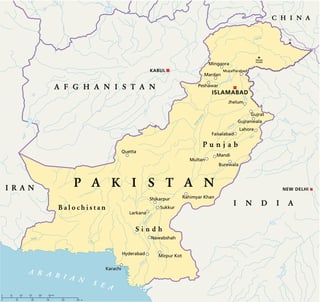Guest Contributor
 With energy demand expected to double by 2030, Pakistan shows significant growth potential for energy investment opportunities in the near term. By way of one of the most liberal foreign investment regimes in South Asia, Pakistan presents investment opportunities across the spectrum, from coal based power projects to natural gas and renewables. The Government of Pakistan attaches high priority to oil and gas exploration and the sector remains the major target of foreign investors. But, with new clean energy partnerships, opportunities exist for investment in innovative technologies. Boasting new policy frameworks, Pakistan is positioning itself to efficiently exploit its resources and leverage investments in newer energy technologies.
With energy demand expected to double by 2030, Pakistan shows significant growth potential for energy investment opportunities in the near term. By way of one of the most liberal foreign investment regimes in South Asia, Pakistan presents investment opportunities across the spectrum, from coal based power projects to natural gas and renewables. The Government of Pakistan attaches high priority to oil and gas exploration and the sector remains the major target of foreign investors. But, with new clean energy partnerships, opportunities exist for investment in innovative technologies. Boasting new policy frameworks, Pakistan is positioning itself to efficiently exploit its resources and leverage investments in newer energy technologies.
To meet current and future energy demand, the Government of Pakistan is developing different energy generation projects that are expected to contribute an additional power supply of 16,800 MW by the end of 2015 through 2016. While around 48% of Pakistan’s power needs are met through indigenous gas supply, the country also has large, economically viable resources in wind, solar, geothermal and hydro-power.
Foreign investment is fully protected under the Foreign Private Investment Act of 1976 and Protection of Economic Reforms Act of 1992. Other protections are available through the Multilateral Investment Guarantee Agency of the World Bank, which provides guarantees and insurance for investors’ projects in developing countries.
The Government of Pakistan has shown a strong commitment to embracing a portfolio consisting of a mix of energy sources. It plans to increase the portion of coal in its energy mix from 10% to 18% by 2018, and has announced a 10-year road map for private investment aimed at drilling up to 100 wells per year. The government also has instructed the Atomic Energy Commission to install 8,800 MW of nuclear power capacity by 2030. For these and other projects, Pakistan has provided an investor-friendly environment to attract both domestic and foreign investments. The Government offers numerous incentives to attract foreign investment, which include favorable treatment of capital gains and dividends, and repatriation of capital.
Notwithstanding the government incentives and a significant market for power projects, there are both actual and perceived political risks to consider before investing in the region. While economic conditions have improved over the past year in Pakistan, adverse political and security events have occurred which may cause cautious investors to remain on the sidelines for the time-being. Financial indicators have trended upwards, however, with Standard & Poor’s raising Pakistan’s credit rating from stable to positive, but its B- rating remains as of May, 2015. The general economic outlook for Pakistan is positive into FY18, with the Government producing stronger and more attractive policies for foreign and domestic investment across energy sectors.
Bennett Resnik the Founder of Tower Advisory Group in Washington, DC. Tower Advisory Group works with clients in evaluating regulations that may impact energy businesses, investments, or future growth. Contact: bennett@tower.energy


.jpg?width=220&name=Sullivan%204c(B2402503).jpg)